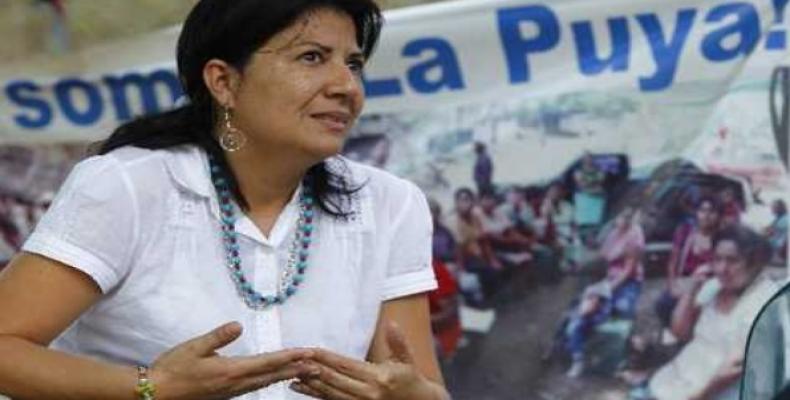Guatemala City, December 11 (teleSUR-RHC)-- Mining projects and resource extraction in Guatemala exacerbate the discrimination and violence that women face in all areas of Guatemalan society, Rights Action Director Grahame Russell told teleSUR English on Thursday.
“Repression and human rights violations caused by global mining operations in Guatemala have added negative effects on women in general and indigenous women in particular,” Russell told teleSUR English.
Russell’s comments come after human rights defenders slammed Guatemala’s widespread resource extraction on Wednesday for violating human rights, especially the rights of women, who often face attacks, sexual violence, and social and political repression for their work defending land and natural resources.
Women from various communities struggling against unwanted resource extraction projects throughout the country gathered in the capital Guatemala City to discuss the repression, criminalization, and violence disproportionately faced by women rights defenders, especially indigenous women, Prensa Latina reported.
Among the representatives were women from the community of La Puya, in central Guatemala, where they are key leaders in the blockade against the construction of a gold mine and central to the movement’s strategy of nonviolent resistance.
The women called attention to the links between violence against women and the development model in Guatemala based on privatization, mining extraction, and exploitation of natural resources.
“When repression is committed by mining company security guards, soldiers, and police, rape and sexualized violence have also been used against women and girls,” said Russell. “When communities suffer health harm due to mining contaminated water sources, women and children suffer the consequences most.”
Forced displacement can also disproportionately impact women, Russell explained, as men sometimes accept low-paying mining jobs in exchange for their land behind the backs of women.
Guatemalan activist, feminist artist, and politician Sandra Moran explained that women rights defenders regard women’s bodies, land, nature, history, and memory as all “territories in dispute,” Prensa Latina reported.
The activists’ message echoed the findings of a recent report by the Mesoamerican Initiative of Women Humans Rights Defenders, which found that women defending land and territory in the face of mining operations and other projects between 2012 and 2014 were the most vulnerable among all women rights defenders in Central America and Mexico to gender violence, including harassment, abuse, assassination attempts, and other attacks.
The call for more attention to be paid to the plight of women rights defenders comes ahead of the conclusion of the COP21 climate summit in Paris, where organizations and activists have slammed the draft deal for being weak on human rights protection and the recognition of indigenous communities in the context of climate change.
According to Global Witness, Guatemala is one of the 10 most dangerous countries in world for land and environmental defenders.


